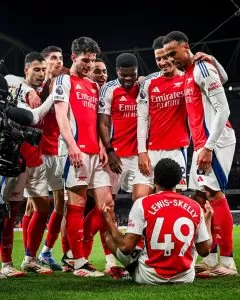Ojude Oba Festival: A Vibrant Celebration of Ijebu Heritage

The Ojude Oba Festival, often hailed as Nigeria’s grandest cultural spectacle, is an annual celebration held in Ijebu-Ode, Ogun State, Nigeria. This centuries-old tradition, which translates to “The King’s Forecourt,” is a vibrant homage to the Awujale, the paramount ruler of Ijebuland, and a dazzling showcase of Yoruba culture, unity, and heritage. Held on the third day after Eid al-Kabir (Ileya), the festival draws thousands of locals, Ijebu diaspora, and tourists to witness a colorful blend of tradition, artistry, and community pride. Here’s everything you need to know about this iconic event.
Historical Roots of Ojude Oba
The Ojude Oba Festival traces its origins to over 200 years ago during the reign of Oba Adesimbo Tunwase in the late 19th century. Initially, it began as a gesture of gratitude from the Ijebu Muslim community to the Awujale for his inclusive leadership and support, particularly in granting them land for religious activities. Over time, the festival evolved from a religious token of appreciation into a grand celebration of Ijebu identity, transcending religious boundaries to unite Muslims, Christians, and traditionalists alike.
The festival’s name reflects its essence: a gathering in the forecourt of the Awujale’s palace, where the community comes together to honor their king and celebrate their shared heritage. Today, it stands as a symbol of resilience, unity, and pride in Ijebu culture, making it one of Nigeria’s most significant cultural events.
When and Where It Happens
Ojude Oba is held annually in Ijebu-Ode, a historic town in Ogun State, typically two or three days after Eid al-Kabir, aligning with the Islamic lunar calendar. For 2025, while exact dates depend on the lunar calendar, the festival is expected to take place in June or July, continuing its tradition of vibrant celebration. The event unfolds in the heart of Ijebu-Ode, with the Awujale’s palace serving as the central stage for the festivities.
Key Features of the Festival
The Ojude Oba Festival is a sensory feast, blending music, dance, fashion, and pageantry. Here are the key elements that make it unforgettable:
1. Regberegbe Age Grades
A cornerstone of the festival is the participation of Regberegbe, age-based social groups that play a pivotal role in Ijebu community life. These groups, organized by age and gender, pay homage to the Awujale through coordinated displays, tributes, and performances. Each Regberegbe showcases its unique identity through colorful attire and synchronized presentations, reflecting the social cohesion and structure of Ijebu society. The involvement of these groups underscores the festival’s emphasis on community unity and collective pride.
2. Balogun Horsemen
One of the festival’s most captivating spectacles is the equestrian display by the Balogun families, descendants of Ijebu warlords. Dressed in regal attire, these horsemen perform intricate maneuvers, showcasing skill, bravery, and tradition. The thundering hooves and vibrant regalia of the horses add a majestic flair to the event, captivating onlookers and honoring Ijebu’s warrior heritage.
3. Cultural Performances
The festival is alive with the rhythms of traditional Yoruba music, dance, and drama. Performances like the Atiku dance, a graceful and rhythmic display, enthrall audiences with their energy and artistry. Drummers, singers, and cultural troupes fill the air with sounds and movements that celebrate Ijebu’s rich artistic heritage. These performances are not just entertainment but a means of preserving and passing down cultural traditions to younger generations.
4. Aso Ebi and Fashion Extravaganza
Ojude Oba is synonymous with vibrant fashion, particularly the tradition of Aso Ebi (family cloth). This Yoruba dress code sees families, Regberegbe, and communities donning coordinated outfits, often in bold, colorful fabrics like Aso Oke, Ankara, or lace. The result is a breathtaking display of style, with participants competing to outshine one another in intricate designs and accessories. The festival has become a global stage for Yoruba fashion, earning praise for its elegance and cultural significance.
5. Parades and Processions
The festival features colorful parades that wind through Ijebu-Ode, with Regberegbe, cultural troupes, and dignitaries showcasing their pride and creativity. These processions, marked by music, dance, and vibrant displays, create a festive atmosphere that engulfs the town. The sight of thousands moving in unison, dressed in resplendent attire, is a testament to the festival’s scale and communal spirit.
6. Homage to the Awujale
At the heart of Ojude Oba is the act of paying homage to the Awujale, the revered monarch of Ijebuland. Groups and individuals approach the king’s court to offer tributes, prayers, and performances, reinforcing his role as a unifying figure. The Awujale’s presence, seated in state, adds a regal aura to the event, with his blessings and leadership symbolizing continuity and stability for the Ijebu people.
Cultural and Social Significance
Ojude Oba is more than a festival; it’s a powerful expression of Ijebu identity and Yoruba heritage. It fosters unity across religious and social divides, bringing together people from all walks of life to celebrate their shared culture. The festival also serves as a platform for cultural preservation, ensuring that traditions like Aso Ebi, equestrian displays, and Regberegbe systems remain vibrant in modern times.
Economically, Ojude Oba boosts tourism and local businesses in Ijebu-Ode, with visitors flocking to experience its grandeur. The festival’s global appeal has grown, thanks to social media and diaspora participation, with posts on platforms like X describing it as “Nigeria’s biggest cultural festival” and the “most well-organized” event in the South West. Its ability to blend tradition with modernity makes it a unique cultural gem.
Ojude Oba in 2025
The 2025 edition of Ojude Oba is anticipated to be a grand affair, building on the festival’s growing reputation. Expect even more elaborate displays of fashion, with Aso Ebi trends setting the tone for Yoruba style. The Balogun horsemen, cultural performances, and Regberegbe parades will likely draw larger crowds, with organizers aiming to enhance the festival’s global reach. Sponsors, such as corporate brands, often support the event, adding to its scale and visibility.
For those planning to attend, prepare for a sensory overload of color, sound, and tradition. Visitors are advised to arrive early, dress in comfortable yet festive attire, and immerse themselves in the communal spirit. Updates on the exact date and program can be found through sources like Vanguard, BellaNaija, or local Ijebu community announcements.
Why Ojude Oba Matters
The Ojude Oba Festival is a living testament to the resilience and pride of the Ijebu people. It celebrates their history, artistry, and unity while showcasing Nigeria’s cultural richness to the world. Whether you’re captivated by the rhythmic dances, the majestic horsemen, or the kaleidoscope of Aso Ebi, the festival offers an unparalleled experience of Yoruba heritage. As a bridge between






